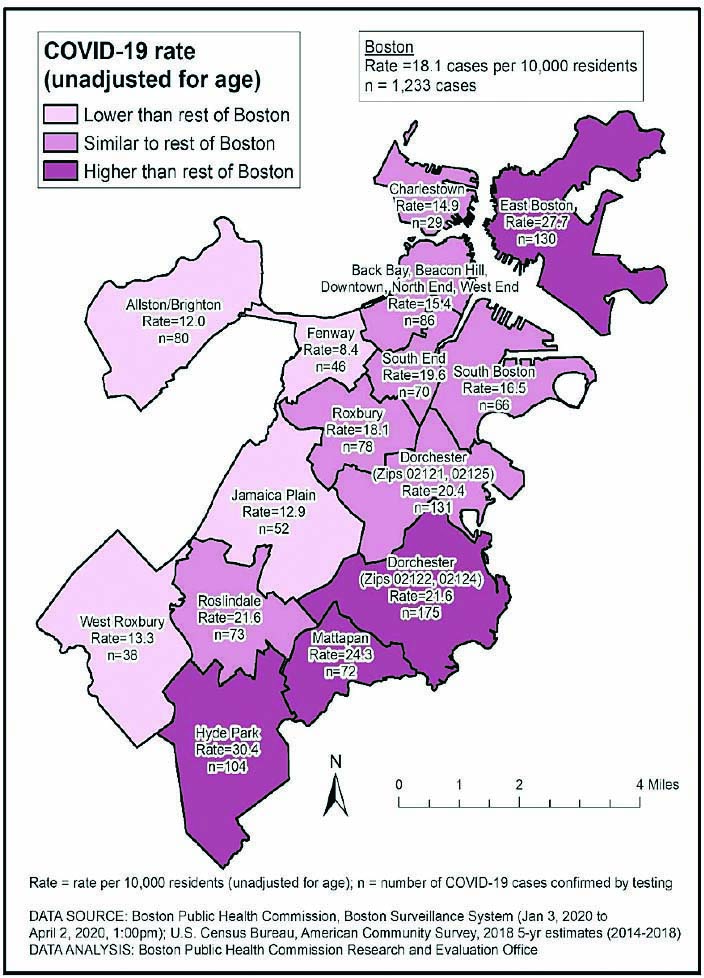April 22, 2020

The Boston Public Health Commission’s ‘Health of Boston 2016-2017’ report, shows that black and brown communities in Boston are more likely to suffer higher rates of chronic illness such as asthma, heart disease, hypertension and diabetes. The prevalence of these pre-existing health disparities in communities of color put them at even greater risk of becoming seriously ill or facing deadly circumstances from infectious disease.
This is what we knew before the outbreak of COVID-19. Recently, the State’s Department of Public Health released geographical and racial data which confirms that to be true. The state’s data shows that cities like Boston, Brockton, Chelsea and Randolph are among the top five cities with the highest rates of COVID-19 infections in the Commonwealth. Within the City of Boston, which has the largest number of reported cases of COVID-19 – the communities of Dorchester, Mattapan, Hyde Park, and Roxbury account for 61% of all cases reported in Boston.
The correlation between contraction rates of COVID-19 and chronic disease, particularly in communities of color, is staggering.
Recently, Boston Medical Center - the state’s largest safety net hospital, reported that COVID-19 positive patients have much higher rates of underlying conditions including 34% with diabetes, 49% with hypertension and 52% with a BMI above 30. This confirms an CDC report released earlier in April, which conducted a nationwide study, which showed that 78% of people requiring admission to hospital intensive care units had at least one underlying health condition (diabetes, hypertension, heart disease and/or asthma).
This is a crisis within a crisis.
While we commend the Department of Public Health for recently updating the Crisis Standards of Care recommendations that were initially challenged due to the disproportionate impact those recommendations could have on chronically ill, black and brown COVID-19 patients’ survival rates, we must now focus on the front end of treatment: testing.

Currently, the State is prioritizing support for COVID-19 testing by the Massachusetts National Guard’s mobile testing unit at nursing homes and long term facilities. There’s good reason for that. Patients at long term care and nursing facilities are the most vulnerable to the worst outcomes of COVID-19. But low income seniors and families, who have higher rates of chronic illness, aren’t far behind.
That is why the National Guard’s mobile testing unit should be authorized to perform mobile testing in senior and low income housing communities and drive through testing in communities with high rates of chronic illness.
These policy actions would immediately remove barriers to critical COVID-19 screening, prioritizing the most vulnerable communities across the Commonwealth during the most significant public health crisis of our time.
Our first in the nation Massachusetts National Guard is an outstanding humanitarian force. Their involvement will be key in bringing access to testing in our most vulnerable communities as we fight this public health crisis statewide.




